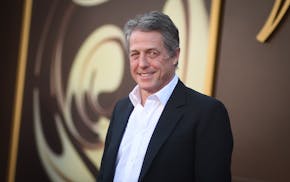KANO, Nigeria — Multiple explosions at a bar and entertainment area in a Christian quarter of Nigeria's northern and mainly Muslim city of Kano killed at least 24 people, a hospital official said Tuesday.
Lt. Ikedichi Iweha, a spokesman for the Military Joint Task Force, said earlier Tuesday that 12 people died at the scene and "a couple" of people were wounded in Monday night's attack, which he blamed on suspected members of the Islamic extremist Boko Haram network.
But the spokesman for Aminu Kano Teaching Hospital said its mortuary had 24 bodies brought from the scene and another hospital. The teaching hospital also was treating nine people wounded in the blasts, said spokesman Aminu Inuwa.
Another 11 victims were being treated at Murtala Muhammad Specialists Hospital.
Printer Ezekiel Alade, 47, said he heard "a deafening sound" and was injured by two of the blasts. "A sharp object pierced through my left hand and blood gushed out," he said. "Then, another bomb exploded and, before I could escape, another object pierced into my leg."
He was trying to crawl to safety when a soldier saved him.
Kano state Gov. Rabiu Musa Kwankwaso visited Alade and other victims Tuesday. He described the explosions as "an attack on Nigeria because Muslims and Christians" and people of various tribes all lost their lives or were injured.
More than 100 people gathered outside the Aminu Kano hospital morgue, weeping and screaming in anguish Tuesday afternoon. Military officials would not allow them into the morgue, so many said they have no idea if missing loved ones are dead or alive.
Nigeria is fighting an uprising by Islamic extremists based mainly in the northeast, where the government has declared a state of emergency. Kano city and state are in the northwest and not part of that emergency.
Boko Haram, which means "Western education is forbidden," wants to impose Islamic law in all of Nigeria.
With more than 160 million people, Nigeria is Africa's most populous nation, and it is divided almost equally between Christians who live mainly in the south and Muslims who dominate the north.
Nigeria's army announced Tuesday it has arrested 42 suspected Boko Haram members in the southwestern states of Ogun and Lagos, which includes the commercial capital of the same name.
Maj. Gen. Obi Umahi told reporters that some of those detained already have admitted to belonging to the extremist network. He said some said they had fled from strongholds in the northeast of the country that are under a state of emergency and military operations.
Boko Haram has never attacked targets in the southwest of the country.
Umahi said some suspects were arrested in Lagos on upscale Victoria Island's Bar Beach and in the Lekki neighborhood. The arrests were made between July 12 and 23.
That raises fears that the military operations have forced militants into other states where they could attack.
Monday night's attack at just after 9 p.m. (21:00 GMT) rocked an area popular for its outdoor bars, blaring music, snooker tables and table tennis.
Witness Kolade Ade said at least one blast appeared to come from a Mercedes-Benz parked beside the bar.
"After the first bomb, I threw myself into the canal (drain) to hide. There were at least three blasts," he said.
But Lt. Iweha said in a statement that the explosions were not the work of a suicide bomber but of parcels of explosives planted in the area.
"This latest incidence could have been avoided if citizens maintain vigilance to observe when packages are dropped, as it was in this case," he said.
The explosions came as hundreds of people thronged the area in the Sabon Gari neighborhood, and raised fears among the city's mainly Muslim population as well.
In March, a suicide bomber drove a car loaded with explosives into a bustling bus station in the same Christian neighborhood of Sabon Gari, killing 25 people.
Exactly a year ago, suspected Islamic militants attempted to attack a mosque in Kano city. They were engaged by police in running gun battles in which the militants killed five civilians and police killed four of the attackers.
In December, three days before Christmas, Kano was rocked by twin suicide car bombings that targeted two major mobile telephone companies. One worker was wounded in one attack. Security officials botched the second attack by shooting the bomber, which caused an explosion at the company's gate.
In January, worshippers foiled an attack on the Kano Central Mosque, killing two suspected bombers.
President Goodluck Jonathan declared a state of emergency on May 14 in six northeastern states covering one-sixth of the country, admitting that Islamic fighters had taken control of some towns and villages.
Militants have targeted Muslim political and religious leaders who preach against their extreme form of Islam. Recently, the extremists have targeted schools, killing scores of students and some teachers.
The Boko Haram network is blamed for the killings of more than 1,600 people since 2010, when suicide bombers drove a car filled with explosives into the lobby of the United Nations offices in Abuja, Nigeria's capital.
Defense and security are on citizens' minds before the EU Parliament elections, a survey finds
